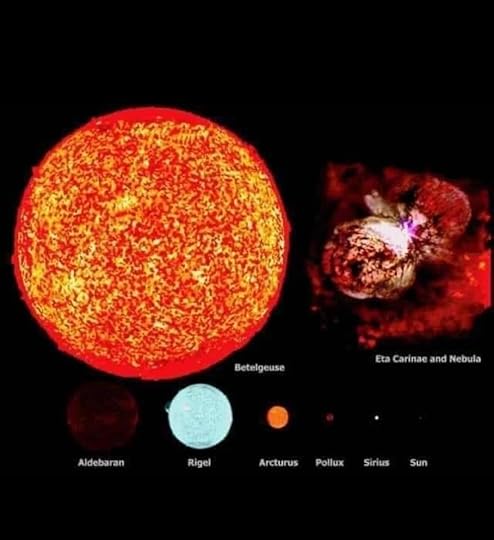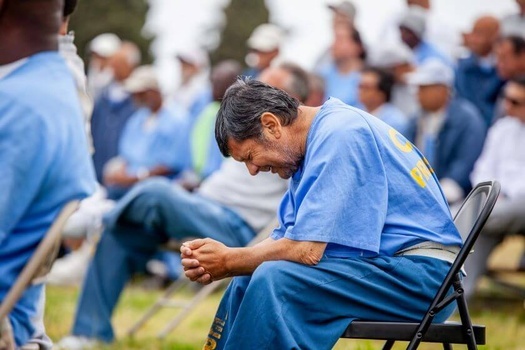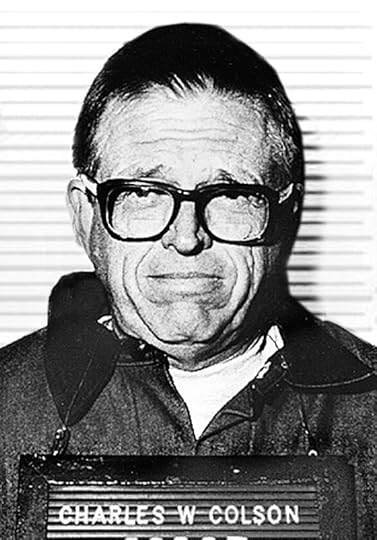Randy Alcorn's Blog, page 60
January 12, 2022
How Can We Be Filled with the Spirit?

Note from Randy: If all Desiring God Ministries had done for us was to get John Piper’s books out to readers, that would be more than enough. If all it had done was to give us my favorite podcast Ask Pastor John, that would be enough. If all it had done was to get into our hands and eyes the magnificent Look at the Book series that probes into Scripture and models how to do careful and insightful personal Bible study and faithful interpretation of God’s Word, that would be enough. If all they had done was give us a remarkable array of online articles from a variety of young and middle aged and older Christ-following men and women, that would be enough.
But Desiring God does all this and much more, reaching across the globe to bring glory to our Lord and Savior. Nanci and I and Eternal Perspective Ministries have supported Desiring God for many years, and it’s one of those ministries we really believe in. It’s making an eternal and Christ-honoring difference in the lives of people around the world. I encourage you to support this vital ministry.
How Can I Be Filled with the Spirit?
By John Piper
Whatever was written in former days was written for our instruction, that through endurance and through the encouragement of the Scriptures we might have hope. (Romans 15:4)
How can we be filled with the Holy Spirit? How can we experience an outpouring of the Holy Spirit upon our church and ourselves that fills us with indomitable joy and frees us, and empowers us, to love those around us in ways so authentic that they are won to Christ?
Answer: Meditate day and night upon the incomparable, hope-giving promises of God. As Romans 15:4 shows us, that’s the way Paul kept his heart full of hope and joy and love. “Whatever was written in former days was written for our instruction, that through endurance and through the encouragement of the Scriptures we might have hope.”
The full assurance of hope comes from meditating on the promises of God’s word. And this does not contradict the sentence nine verses later that says that the Holy Spirit gives us hope (Romans 15:13). This is because the Holy Spirit is the divine author of Scripture. His word is the means of his work. It is no contradiction that the way he fills us with hope is by filling us with his own word of promise.
Hope is not some vague emotion that comes out of nowhere, like a stomachache. Hope is the confidence that the stupendous future promised to us by the word of the Spirit is going to really come true. Therefore, the way to be filled with the Spirit is to be filled with his word. The way to have the power of the Spirit is to believe the promises of his word.
For it is the word of promise that fills us with hope, and hope fills us with joy, and joy overflows in the power and freedom to love our neighbor. And that is the fullness of the Holy Spirit.
For further study:
Here is an entire message by John Piper that gets into the filling of the Spirit much more than this small excerpt.
These brief resources from Got Questions? are also helpful:
How Can I Be Filled with the Holy Spirit?
How Do We Receive the Holy Spirit?
What Is the Baptism of the Holy Spirit?
Article by John Piper. © Desiring God Foundation. Source: desiringGod.org
Photo by Tamara Menzi on Unsplash
January 10, 2022
When We Lose Sight of Heaven, Our North Star

In his book The Eclipse of Heaven, theology professor A. J. Conyers argues that until recently the doctrine of Heaven was enormously important to the church. Belief in Heaven was not just a nice auxiliary sentiment. It was a central, life-sustaining conviction. Sadly, even for countless Christians, that is no longer true.
Heaven has fallen off our radar screens. How can we set our hearts on Heaven when we have an impoverished theology of Heaven? How can we expect our children to be excited about Heaven—or to stay excited about it when they grow up? Why do we talk so little about Heaven? And why is the little we have to say so vague and lifeless?
In this video clip, I share how Heaven should be our North Star, reminding us where we are and which direction to go:
For more on the New Earth, see Randy’s book Heaven . You can also browse our additional resources on Heaven.
Photo by Ethan Sykes on Unsplash
January 7, 2022
Helpful Things to Say to Those Grieving or Suffering

Note from Randy: Tim Challies, whose son went to be with Jesus last year, wrote an article about Helpful Things You Can Say to Grieving Parents. His advice applies to anyone wanting to know what to say to someone who is grieving or going through deep suffering.
There is such power in the simplicity of Tim’s article. It prompted me to text some friends facing the anniversary of their adult child’s death. I was with these dear friends every day for five days in a row (at their request) after their child died, so I heard a lot of what friends and family said. It forever engrained in me what people, including me, said and did that was meaningful and helpful, and what was not.
I vividly remember in October 1981 walking into my church to preach the same week my mom had died, and how I described it later as the parting of the Red Sea. People knew how close I was to my mom, and at first, dozens stood back and looked down because they just didn’t know what to say. Fortunately, then some people broke through the crowd and hugged me and cried, and then everything was as it should be, with grief and comfort and tears.
Tim’s article brought to mind what one of our EPM staff members wrote five years ago about the loss of her unborn son. I went back and reread it (and her subsequent article on God’s sovereignty). She includes an amazing story told by Dr. Walt Larimore. Wow.
Helpful Things You Can Say to Grieving Parents
By Tim Challies
It can be awkward to reach out to those who are deep in grief. It can be hard to know what to say and easy to believe that our words are more likely to offend than comfort, to make a situation worse rather than better. We sense that our words ought to be few, but also that the worst thing to say is nothing at all.
I recently consulted with a few other parents who have experienced the loss of a child and want to offer a few things you can say to grieving parents that may prove an encouragement to them—a flicker of light in their time of deep darkness. These phrases may be helpful to people experiencing other forms of grief, but I offer them particularly for those grieving the loss of a child.
“I am praying for you.” This is the one thing every person can do and the one thing that is simplest to say. When a family has experienced a deep loss, you can intercede for them and then, as a means of encouragement, simply let them know that you have been doing so. You may even tell them how you have been praying for them—perhaps what Scriptures you have been praying on their behalf. One word from the Word is worth a thousand from anywhere else.
“I will never grow tired of your grief.” A deep loss is very nearly all-consuming. For weeks and even months it can completely dominate a life. The one who is experiencing the grief may soon begin to fear becoming an annoyance to others—to fear they will wonder why he or she isn’t yet over it. It is a tremendous blessing, then, to have one or two trusted friends offer this assurance: “I will never grow tired of your grief.” This makes those friends a safe harbor for expressing sorrow, whether weeks, months, or even years later. It blesses the sufferer to know they will always have someone who will listen patiently as they pour out their broken hearts.
“I’ll stick with you all the way.” Many well-wishers will express condolences in the early days, but few will continue to be present and available weeks, months, or years later. This is completely understandable, of course. Yet there is a place for a small number of close friends to say, “I’ll stick with you all the way.” This is an agreement that they will continue to be available and continue to initiate good conversations in the latter days as much as the early days. These people may want to schedule regular meetings and check-ins—perhaps breakfast or coffee every couple of weeks at first, then with the gap widening as time passes. These people will want to ensure they live up to their word and truly do stick with their friends all the way.
“Text me any time and say only, ‘I’m having a bad day.’” On days of deep grief, it can be difficult for a grieving parent to reach out for help because it would be too overwhelming to have to offer explanations and answer questions. There is freedom in being able to text someone to say only “I’m having a bad day” with no further explanation and no follow-up interrogation. This is an invitation not to have the other person call and counsel, but simply to stop and pray. That person can be a tremendous encouragement by replying with nothing more than this: “I’ll pray for you right now.”
“Dinner is on me.” When people are deep in grief, little things can become big things. Mourners carry a heavy burden of spiritual and emotional trauma that makes even tasks as simple as preparing meals onerous or very nearly impossible. One of the most helpful things you can do is provide food—whether dropping off a meal (preferably hot and ready-to-eat at dinner time), ordering one through UberEats or SkiptheDishes, or sending along gift cards. This fulfills one of those essential tasks and takes it out of the hands of the one experiencing such difficulty. (Alternatively or additionally, if you are at the grocery store, text and ask, “I’m at the store, is there anything I can pick up for you?”)
“One of my favorite memories is…” A fear of all parents who have lost a child is that their child will be forgotten (which would, in turn, make them feel like their child’s life didn’t matter). For this reason, sharing favorite memories is often a means of encouragement. Most parents long to know those stories and to laugh and cry as they hear them.
“I am thinking of you today.” After the initial days, weeks, and months following a loss, grief tends to reassert itself on occasions and anniversaries. It can be an expression of love and care to get in touch with the family on the birthday of the child who died as well as on the anniversary of his death. If relevant, it may also be a blessing to be in touch on the day he would have been married or would have graduated, and so on. This is perhaps especially important in the first year—the year of so many firsts.
“What can I do for your kids?” The death of a child impacts the entire family, including older and younger siblings. It may be extremely helpful for friends to step in to babysit younger children and to spend time with or even informally counsel older children. Little gifts or tokens of love for the kids may prove a blessing.
“May I pay my respects?” For many families, it is a sign of love and respect for friends to visit the grave of their loved one. Some may prefer to be there when their friends visit, and others will be encouraged simply to know that their friends took the time. But, either way, the family may be blessed to know you have visited the grave and paid your respects.
(A word about cemetery etiquette: You can simply stand quietly at a graveside to remember the deceased or to pray and thank God for the person’s life and ask him to bless the grieving family. Though it is not at all necessary, it may be meaningful to take flowers and simply lay them at the grave. Some cemeteries have strict regulations about what can be brought and left, others have no regulations at all. If you visit on your own, the family may be encouraged to know you visited, so consider telling them.)
This article originally appeared on Challies.com and is used with permission of the author.
January 5, 2022
A Doctor Gives a Dying Woman the Gospel Message, and Why We Offer Both Physical and Spiritual Care in Christ’s Name
One of the ministries EPM has long supported is MedSend, a group that funds qualified healthcare professionals to serve the physical and spiritual needs of people around the world. Our friend John Brose was one of EPM’s original supporters since our beginning in 1990. Dr. Brose was a member of our church, a beloved physician, and a former missionary physician to Burundi who served on the board and was vitally involved with MedSend. He often talked to me about this important ministry and told me stories of what God was doing through them.
John Brose was particularly excited about how MedSend offers student loan repayment grants to healthcare professionals who are headed for career healthcare missions service. He explained to me how medical missions has been greatly hampered through the extreme debt often involved in going to medical school. Those who have aspirations to go overseas to places of greatest need often owe so much money that they are hindered from following their heart to serve in poor countries. MedSend exists partly to help pay off the medical school debts of missionaries while taking them to serve Christ among the poor.
Dr. Geoffrey Moses, serving with his family in a country in West Africa that has had the highest infant mortality rate and the lowest life expectancy in the world, is one of those medical missionaries who has received loan help through MedSend. They recently sent this short and deeply touching video featuring him. Dr. Moses details what happened when he met a woman in a remote village in Western Africa who had metastatic breast cancer that had gone undiagnosed and untreated:
Watching the video of Dr. Moses reminds me that I often hear it said that we should just get people the gospel and not talk about physical, social, and justice issues. But exactly the opposite is true. When we advocate for people and care for them in their distress, that’s when the words of the gospel have the most impact. Why? Because people know we love them, and we are giving ourselves for them. Nothing opens up doors for evangelism like need-meeting ministries.
When he read aloud Isaiah in the synagogue, Jesus applied to himself and his ministry these prophetic words: “The Spirit of the Lord is upon me, because he has anointed me to bring good news to the poor. He has sent me to proclaim release to the captives and recovery of sight to the blind, to let the oppressed go free…” (Luke 4:16-19). To him, the Gospel was inseparable from tending to people’s spiritual and material needs.
Of course, instead of advocating acts of compassion and justice alongside the Gospel, some offer it in place of the Gospel. That’s neither truly compassionate nor just, because to leave out the Gospel is to leave out Jesus.
Consider these well-known figures in church history who cared for people’s spiritual and physical needs:
John Wesley actively opposed slavery, and encouraged mine workers to unite in order to resist the inhuman treatment by their employers.
Evangelist Charles Finney had a major role in the illegal Underground Railroad, saving the lives of many blacks, all while under criticism from fellow Christians because of his civil disobedience. His college, Oberlin College, became a major stop on the Underground Railroad. (I need to make clear that this example is not an endorsement of Finney’s theology, but his humanitarian and anti-slavery efforts. As do others, I have serious disagreements with many of the theological statements Finney made, related to perfectionism and the atonement. See this article.)
D. L. Moody opened homes for underprivileged girls, rescuing them from hopelessness and exploitation.
Charles Spurgeon built seventeen homes to help care for elderly women, and a large school for hundreds of children. Spurgeon and his church built homes for orphans in London, rescuing them from starvation and vice on the streets.
Amy Carmichael intervened for the sexually exploited girls of India, rescuing them from temple prostitution. She built them homes, a school, and a hospital.
We remember each of these Christians for their evangelism but forget their commitment to personal and social intervention for the weak, needy, and exploited. Perhaps the effectiveness of their evangelism was due to the fact that, unlike many other Christians of their day—and this day—they lived out the gospel they preached. There’s no conflict between the gospel and social concern and action. In fact, there is a direct connection between them. The Great Commission is not our only mission, but to love God and to love our neighbor is. But properly understood, standing up for the weak and needy and vulnerable and speaking up for those who cannot speak for themselves is not a distraction from the Great Commission or “the main thing”— rather, it’s an essential part of the main thing.
Love isn’t just something we display on a wall hanging; it’s something we do: “Little children, let us love not in word and speech, but in action and truth” (1 John 3:18, BSB). Jesus said, “Anyone who loves me will obey my teaching” (John 14:23, NIV). Jesus’ teaching often centered on loving people, as in the story of the Good Samaritan who freely gave of his time and money to care for a stranger who’d been beaten and robbed (Luke 10:25-37). Jesus told us to love the poor, even to put on a feast for them (Luke 14:12-14). He said we should tend to the disadvantaged just as we would if He Himself were the one in need (Matthew 25:31-46).
Jesus also said to love the spiritually poor by bringing them the gospel (Matthew 28:19-20) and by praying that God would send out workers to reach them (Matthew 9:37-38). He modeled evangelistic outreach that took into consideration the unique needs of the individual (for example, John 4:1-42).
In my book Giving Is the Good Life, I write about how in India, people rely on a family member or a paid assistant to care for them in hospitals. When a team of Christ-followers met a man with no one attending him, the first thing they did was wash him. He made it clear they could help him as long as they didn’t try to convert him from his strong Hindu faith.
Days later the hospital discharged the man, as there was nothing more they could do—he was dying.
The team placed the old man in a home for the elderly, where they visited and cared for him regularly. The day the man died, a Christ-following staff member asked him where he thought he would go when he died. The believer held the man’s hand while sharing the good news of God’s love with him.
The Christian asked the old man if he’d like to repent of his sins and live forever with Jesus in Heaven. Unable to speak, but clearly responsive, the man squeezed his hand to indicate agreement. The old man squeezed his hand again when the staff member asked to pray for him. The faint smile on this man’s face was a great encouragement to the team that loved him right up to the moment he moved from this life to the next. By showing love through meeting his physical needs, the team was able to prepare this man to hear the gospel and ultimately meet his spiritual needs.
Photo by Hello Lightbulb on Unsplash
January 3, 2022
The Creator of the Stars Knows You by Name
A reader recently sent me a link on Facebook with some pictures that put earth in perspective in the universe. Below are a few of the images. Seeing this brings me back to gazing into the sky night after night as a boy. And how God used it, and my study of the wonders of the universe, to prepare my heart to meet Him:








The universe is vast, yet God is said to have created it with His fingers. Effortless. No big thing. “He made the stars also” (Genesis 1:14), like a universe 150 billion light years across. If we could wrap our minds around the vastness of creation, it might make us think that it is small, and we are bigger than we are. The truth is that creation is incomprehensibly vast, and we are indeed very small. “The LORD merely spoke, and the heavens were created. He breathed the word, and all the stars were born. Let all the earth fear the LORD; let all the inhabitants of the world stand in awe of him!” (Psalm 33:6,8, NLT).
God is “perfect in knowledge” (Job 37:16). He “knows everything” (1 John 3:20). “He determines the number of the stars and calls them each by name” (Psalm 147:4). That’s countless trillions of stars, each named by God. “When I consider your heavens...the moon and the stars, which you have set in place, what is man that you are mindful of him?” (Psalm 8:3-4)
The size of the earth compared to stars in the known universe is a big part of Louie Giglio’s sermon “How Great Is Our God. You won’t regret spending 40 minutes watching this:
“Your life is a miracle, and the Creator of the universe knows you by name. He's big enough to breathe out stars, yet intricate enough to fashion together the trillions of cells that make up every facet of who you are. The God who spoke the universe into existence made you too and knows everything about you. From the smallest molecule to the situation you find yourself in right now, He's aware of your circumstance and intimately acquainted with everything you do. And He cares about you and promises to carry you through. That's where we find hope in the midst of the darkest places in life. The journey is often complicated and painful, filled with confusion and chaos. Yet, the cross of Christ reveals God's promise to preserve and restore you no matter what the circumstance. He will hold onto you and hold you together, giving strength to those who hope in His unfailing love. He is the everlasting God!”
Photo by Pawel Nolbert on Unsplash
December 31, 2021
A Message of Hope Inside Prison

 Here at EPM, we love the ministry of Prison Fellowship. I loved their founder, Chuck Colson, one of the most brilliant and Christ-loving men I’ve ever known. If you’re older you’re familiar with who he was, Richard Nixon’s “Hatchet Man,” a scholar, Marine, attorney, and assistant to the President of the United States. He was one of the small group of powerful men at the center of the Watergate Scandal, and while in prison he came to faith in Christ.
Here at EPM, we love the ministry of Prison Fellowship. I loved their founder, Chuck Colson, one of the most brilliant and Christ-loving men I’ve ever known. If you’re older you’re familiar with who he was, Richard Nixon’s “Hatchet Man,” a scholar, Marine, attorney, and assistant to the President of the United States. He was one of the small group of powerful men at the center of the Watergate Scandal, and while in prison he came to faith in Christ.

If you’re a believer in Jesus and don’t know who Chuck Colson was, the good news is that you will meet him in God’s presence. But before you meet him there, I recommend you become familiar with this remarkable man. Here he is giving a presentation to the Veritas Forum where he tells his fascinating story of his radical conversion to Christ. If you want to know that story from other sources, read his bestselling Born Again, or Jonathan Aitken’s Colson biography.

In the 1990’s, I would often connect with Chuck at an annual booksellers’ convention, where he would see me and come over, and hug me, overflowing with genuine warmth, grace and love. He would always express his gratitude for EPM’s support of Prison Fellowship. After many of our contributions, he would send me a personal handwritten note. Chuck’s heart for Jesus and for prisoners touched me deeply. (Here’s what I wrote almost 10 years ago, when he died.)
I only spent two days in jail besides some afternoons in holding tanks after I was arrested most days I was involved with peaceful, nonviolent civil disobedience at abortion clinics. (While other famous Christian leaders said what we were doing was wrong, Chuck Colson was adamant in supporting us.) But it was enough to give me a flavor for what it was like to be imprisoned and treated with utter disrespect. Guards and nurses wouldn’t believe anything I said—they’d been lied to routinely so I sympathize with their skepticism—including that I was having an insulin reaction and needed something to bring up my blood sugar. It was just a small introduction to a world I’d never known, but which sticks with me until this day. Those who spend months and years and decades locked up need our prayers—as do all those faithful chaplains who work with them. What a privilege to support them.
Prison Fellowship recently shared this great video from one of their outreach events, where they partnered with Riding High Ministries to present the hope of Christ through the experience of breaking a wild horse:
Learn more about Prison Fellowship Hope Events.
By the way, if you’d like to partner with EPM in reaching prisoners for Christ, we’d be honored if you’d prayerfully consider supporting Eternal Perspective Ministries with a year-end gift. Financial gifts to our General Fund support our operating expenses and staff, and allow us to continue giving away the royalties from my books. (On our donation page, you can also give to our Books for Prisoners Project to directly support that part of our ministry.)
December 29, 2021
A Journey of Generosity

Behind every ministry there are countless faithful givers who say no to certain earthly treasures in order to say yes to reaching the physically and spiritually needy all over the world.
Warren and Brenda Pfohl are two such faithful givers. They wrote our ministry: “We have loved supporting EPM ministry over the past several years. We wanted to share a video The Jesus Film Project made about us and our journey of generosity. Randy and his books about eternity and generosity shaped and molded us, and we wanted to share it with you.”
This video is touching, especially as they talk about how God has used pain and suffering to help them gain a priceless eternal perspective:
The world’s wisdom is, “Do what you can with your wealth today to build a firm foundation for your future years.” Is there any parent or financial counselor, secular or Christian, who would disagree with that? But Scripture tells us we need a far larger perspective concerning our “future years.”
We tend to be extremely shortsighted, envisioning our future as limited to this life only. God’s Word encourages us to use our present wealth so it will keep yielding dividends forever on His New Earth (Revelation 21–22). In contrast to those who think forty years ahead, we should think forty billion years ahead. We are to plan for the eternal life that began in this world, the fullness of which awaits us after death. Only when we think with that perspective can we, with eyes wide open, choose present actions that will pay off in our eternal futures—and bring us great happiness and purpose now.
End of Year Donations to EPM
If you have found our books, articles, social media posts, and/or magazine to be helpful, would you prayerfully consider supporting EPM and being a part of this eternity-shaping ministry in 2022? The gifts we receive in December are vital to support our work in the coming year. We are deeply grateful for your partnership through giving and prayer!
Note that a tax-deductible gift in 2021 must be received by 11:59 p.m. PT on December 31. If you wish to mail a check, our address is 39065 Pioneer Blvd., Suite 100, Sandy, OR 97055. All envelopes must be postmarked by 12/31/21.
December 27, 2021
A Tale of Two Dogs

Note from Randy: This analogy from Trevin Wax is absolutely wonderful. May we be like the second dog in his parable, longing to be in our Master’s presence:
“As the deer pants for the water brooks, so my soul pants for thee, O God, for the living God.” (Psalm 42:1-2)
“My soul thirsts for Thee, my flesh yearns for Thee, in a dry and weary land where there is not water.” (Psalm 63:1)
“How priceless is your unfailing love! Both high and low among men find refuge in the shadow of your wings. They feast on the abundance of your house: you give drink from your river of delights. For with you is the fountain of life; in your light we see light.” (Psalm 36:7-9)
“O taste and see that the Lord is good.” (Psalm 34:8)
The Parable of the City Dog and the Country Dog
By Trevin Wax
A Tale of Two Dogs
Once upon a time, there was a dog that lived in a sprawling house in the middle of the city. Though the house had plenty of doggie toys and plenty of room for play, the city dog hated being cooped up inside. Day after day, it looked longingly out the window and past the fenced-in yard around the house to the street where cars zoomed and pedestrians rushed by. The dog made little use of its spacious accommodations, choosing instead to focus on the doors that were always closed and the curtains that were always drawn.
Every evening, the city dog anxiously awaited the arrival of its master – not because it loved the master but because the master’s arrival provided an opportunity for escape. As soon as the dog heard the master’s keys jingle outside the door, it attempted a mad dash out of the house and into the yard. But without fail the good master, with a pained expression of disappointment, made sure the dog stayed inside where no harm might befall it. Wearily the dog would retreat to a corner of the house and start planning its next escape.
A dozen miles away, there was another dog. This dog lived in a one-room house set on a sprawling country farm. At one edge of the farm’s borders was a cliff overlooking a rushing river. On the other side was a dark forest. But no fences were present. The country dog was free to roam the farm, but it usually preferred to stay close to the front porch. It worried that if it strayed too far, it might miss its master’s arrival.
Every evening, the master’s arrival was the highlight of the country dog’s day. As soon as the master came into view, the dog would bound to his side to greet him. It followed close behind him, wanting to get into the house, not because of anything special inside but simply because it was where the master stayed. Each day without fail, the master showered his love and affection on the country dog and then led it inside the tiny farmhouse, where it wagged its tail with great contentment. Even in a shack, it was so satisfied to be in the master’s presence that the outside world held no power of attraction for it.
Lesson
Growth in holiness does not take place when our focus is on the boundaries but when our focus is on the Master. Fences may keep us from harm, but love for the Master is what keeps us from fences.
This article originally appeared on The Gospel Coalition and is used with the author’s permission.
Photo by Elisa Kennemer on Unsplash
December 24, 2021
Jesus, the God Who Became One of Us and Understands Our Suffering

These last two years have been difficult ones for so many people. But one look at Jesus—at His incarnation and the redemption He provided us—should silence the argument that God has withdrawn to some far corner of the universe where He keeps His hands clean and maintains His distance from human suffering and pain.
We can’t say “He just doesn’t get it or care,” because God’s love comes to us soaked in divine blood. He has firsthand experience in life under the Curse. Christ’s suffering on the cross atoned for our sins, but His suffering, tests, and temptations allowed Him to understand, empathize and help us:
“Therefore, he had to be like his brothers and sisters in every way, so that he could become a merciful and faithful high priest in matters pertaining to God, to make atonement for the sins of the people. For since he himself has suffered when he was tempted, he is able to help those who are tempted” (Hebrews 2:17-18).
“For we do not have a high priest who is unable to sympathize with our weaknesses, but one who has been tempted in every way as we are, yet without sin. Therefore, let us approach the throne of grace with boldness, so that we may receive mercy and find grace to help us in time of need” (Hebrews 4:15-16).
As Tim Keller says, this is “a God who truly understands you, from the inside of your experience.”
Michael Card writes, “…He has come to share the danger as well as the drudgery of our everyday lives. He desires to weep with us and to wipe away our tears. And what seems most bizarre, Jesus Christ, the Son of God, longs to share in and to be the source of the laughter and the joy we all too rarely know.”
God is with you in your suffering. He is Immanuel, God with us. May these precious truths be a deep comfort and joy to you as you celebrate Christmas.
I share more reflections in this 15-minute video:
Photo by Sixteen Miles Out on Unsplash
December 22, 2021
Will We Celebrate Christmas in Heaven?

I think we will celebrate the birth of Christ in Heaven for all eternity. How could we not celebrate His incarnation? Certainly we will celebrate—though celebrate doesn’t seem quite the right word—the triumph of the resurrection of Christ. We will also rejoice in His crucifixion by thanking and praising God for the love He demonstrated by going to the cross for us.
Dietrich Bonhoeffer wrote, “No priest, no theologian stood at the cradle of Bethlehem. And yet, all Christian theology finds its beginnings in the miracle of miracles, that God became human.” There could have been no atonement without the incarnation. It wasn’t as if Christ, the second member of the triune God, could have appeared out of Heaven as a full-grown adult, died on the cross, and gone right back to Heaven. The incarnation tells us He became a man in the fullest sense. Christ lived a fully human life—He had struggles and difficulties, He understood pain, and He even underwent temptation but never sinned. We are going to experience the marvel and wonder of that for all eternity.
“God so loved the world that He sent His only Son” (John 3:16). “The Word became flesh and dwelt among us, and we have seen his glory, glory as of the only Son from the Father, full of grace and truth” (John 1:14). That is the true meaning of Christmas. So do I think we will celebrate Christmas in Heaven? Yes! Christmas is the incarnation. As C. S. Lewis said, “The birth of Christ is the central event in the history of earth—the very thing the whole story has been about.”
I believe when Ephesians 2:7 says, “so that in the coming ages he might show the immeasurable riches of his grace in kindness toward us in Christ Jesus,” that means we’ll be celebrating the entire unfolding drama of redemption—including His incarnation, His atoning work, His resurrection, His triumphant return, and His establishment of the New Heavens and the New Earth.
One thing I love about Christmas is relaxing and celebrating and laughing with my family. Heaven will be the best of Christmas every day. We’ll be able to celebrate, with no tensions or arguments. The other shoe will never drop. No skeletons will fall out of our closets.
The best part of Christmas now is not the presents we receive, but the presence of God with us. Christmas can be a hint, a foretaste of the celebration God’s family will enjoy together. Our very best Christmases here on earth are just a pale shadow—a foretaste of the reality—of what we’re going to experience for all eternity in the presence of Christ in Heaven, where every day will be the enjoyment of Christmas.
Photo: Unsplash



